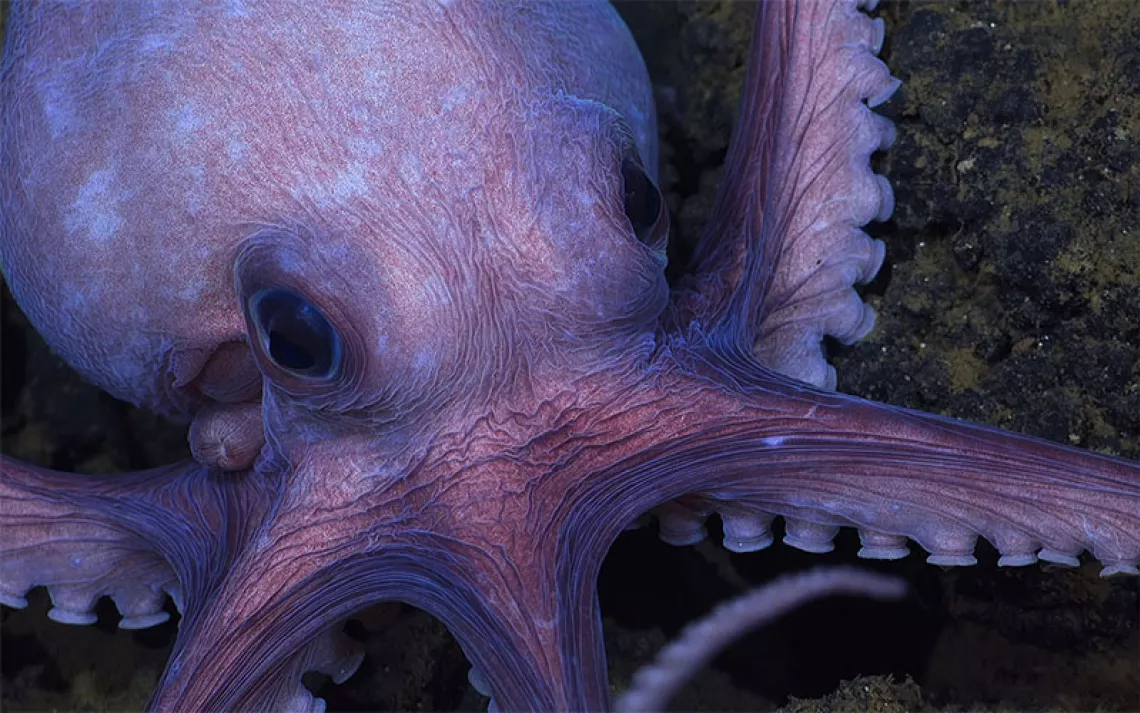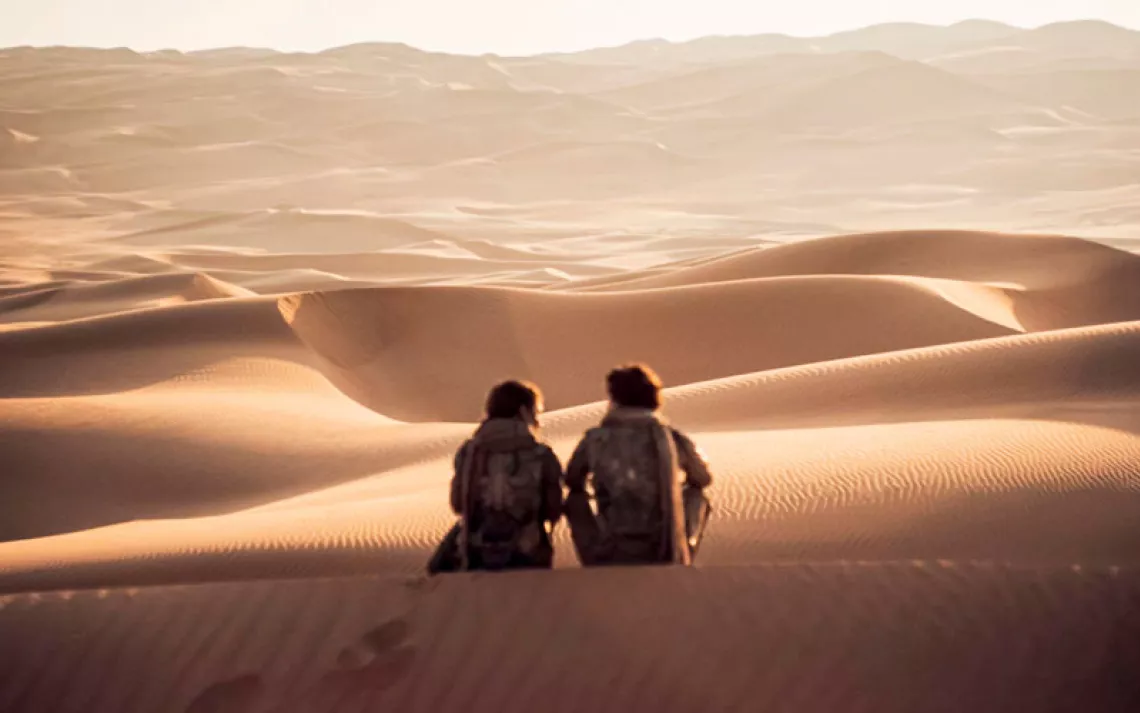New Thru-Hike Documentary Unpacks the Wilds of Patagonia
Inside the making of “Unbounded”
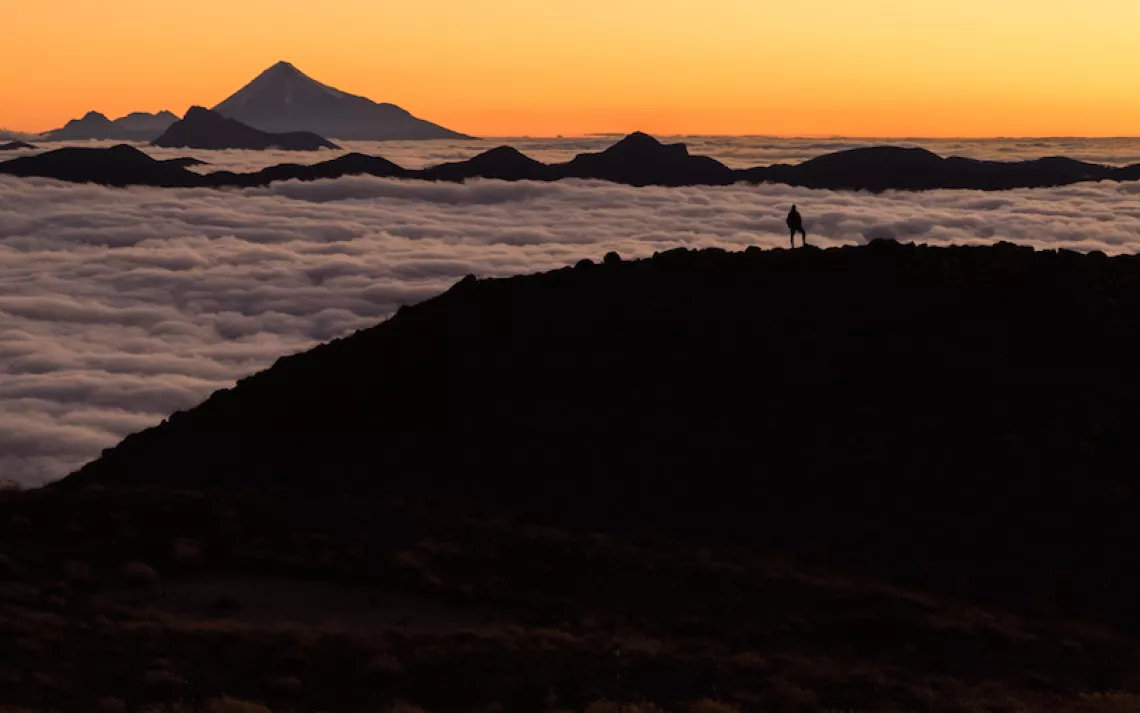
Photos courtesy of Venture Life Films
In December of 2016, Garrett Martin, a 22-year-old business graduate turned filmmaker, convinced three relative strangers to join him on a four-and-a-half-month trek through Chilean Patagonia. The idea was to explore an informal new trail system and to create a feature-length documentary that would pay homage to the Greater Patagonian Trail, the surrounding region and its people, and their local environmental movement—and also chronicle the challenges of making a coherent story out these diverse elements. To complicate matters, Martin and his young crew would be unaided, overloaded, and pitifully underfunded.
And yet, they pulled it off. Unbounded had its theatrical and online release this week—almost exactly a year after the crew completed their hike. The result is an entertaining, narrative-driven film that offers no shortage of Andean eye-candy. But what’s perhaps most compelling is the way in which Unbounded reveals four very young travelers as they deepen in reaction to an intense immersion into raw wilderness and Patagonian culture.
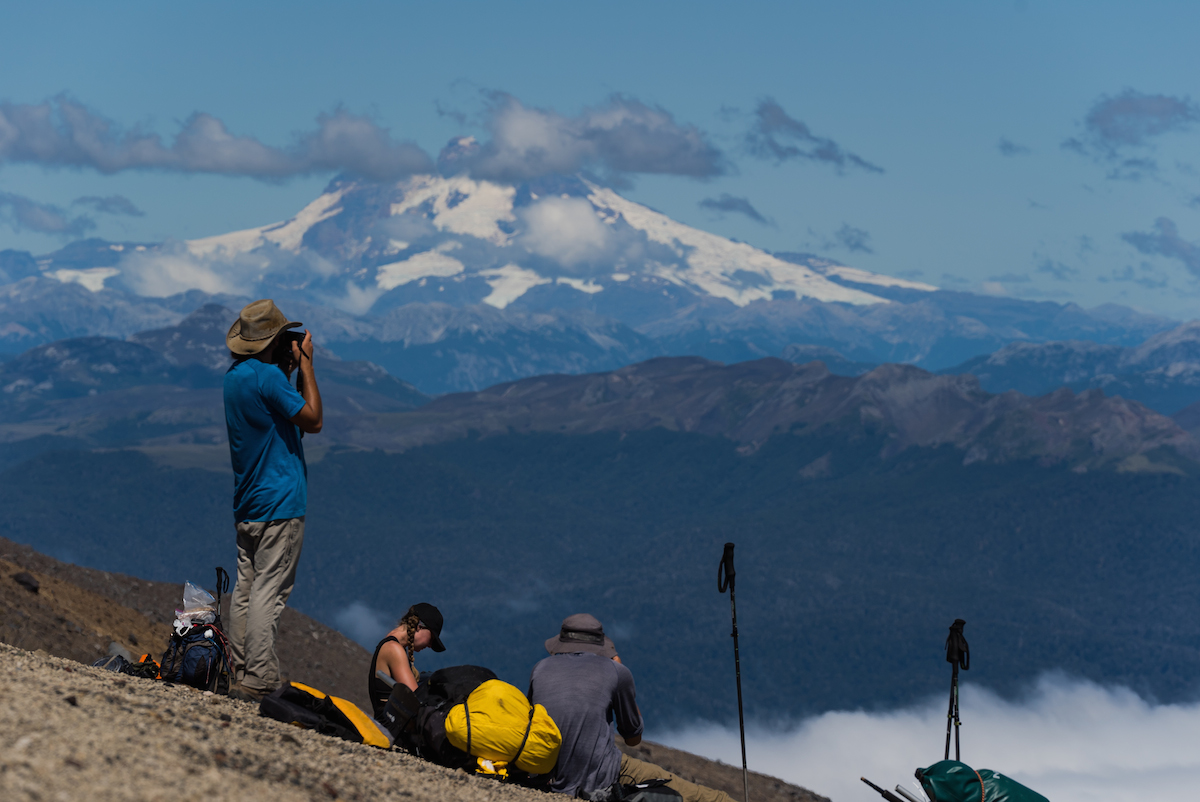
By chance, I followed the development of this film almost from the start. I met Martin via Twitter in late 2016, when he was launching a Kickstarter campaign and pitching Unbounded as a big, dreamy, and ambitious film. I liked it immediately. When the Kickstarter failed to reach its funding goal, however, I assumed that was that. It wasn’t, of course, and after some emails back and forth, Martin agreed to let me interview him on the road in Patagonia every few weeks, as fodder for an audio podcast I was working on at the time.
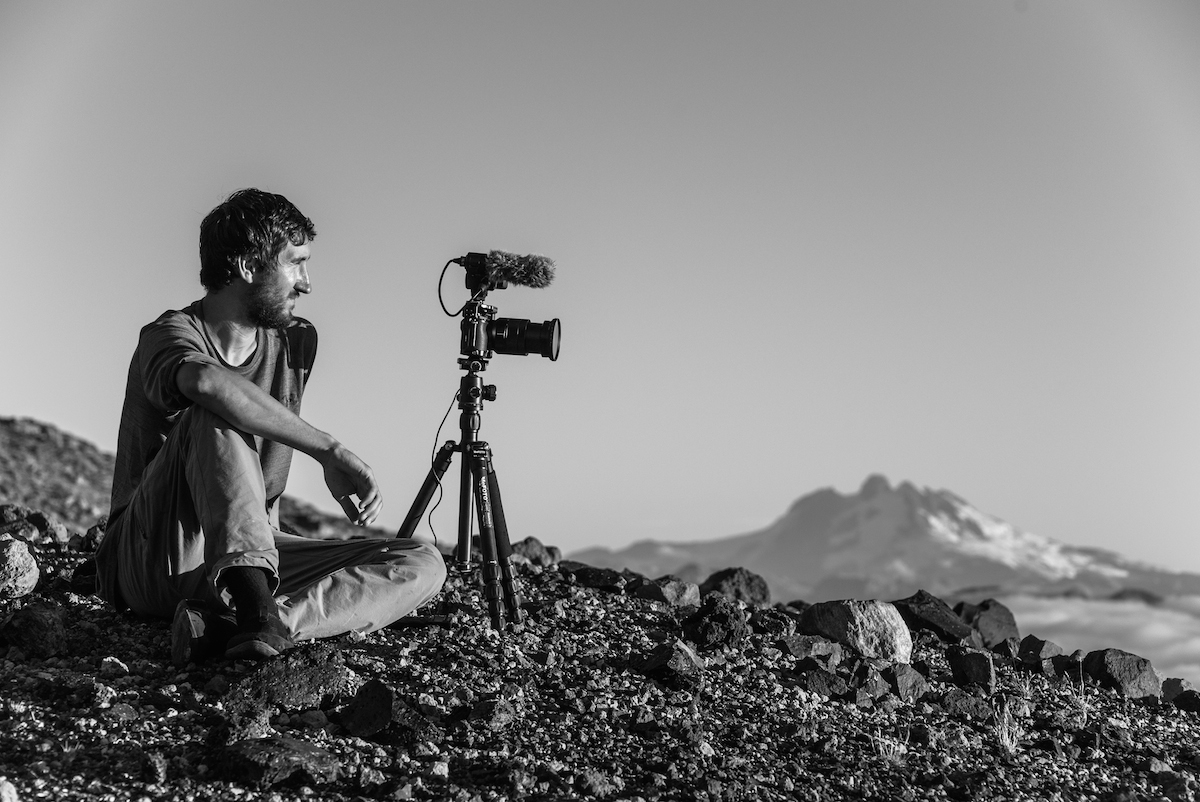 So who is Garrett Martin? The Virginia native (pictured, right) says he became inspired by natural landscapes in his late teens while on a national park road trip with his brother. From photography, he progressed into filmmaking and, inspired by Werner Herzog, embraced the “no school” approach. The idea for a documentary on Patagonia began in mid-2016.
So who is Garrett Martin? The Virginia native (pictured, right) says he became inspired by natural landscapes in his late teens while on a national park road trip with his brother. From photography, he progressed into filmmaking and, inspired by Werner Herzog, embraced the “no school” approach. The idea for a documentary on Patagonia began in mid-2016.
“I’d just finished my first [short] film, Beyond Travel,” Martin says. “I was hitchhiking all the way across Canada and was looking for something new. I've always been drawn to wild and remote places, and when I came across the Greater Patagonian Trail, I knew it was something that I had to do.”
Mapped over the past five years by Dutch hiker Jan Dudeck, the GPT is a loosely linked network of horse trails, footpaths, dirt roads, and rivers. Beginning on the outskirts of Santiago, Chile, and ending at the Southern Patagonian Ice Field, it's reportedly the longest continuous walking system in South America. Rather than a traditional thru-hiking path, such as the Appalachian Trail, the GPT is “a route network for immersion-hiking,” as Dudeck describes it.
Following a brief setup, Unbounded slides right into life on the GPT—the team’s overall inexperience, both as filmmakers and campers, drives the story. They are a likeable lot of early-20-somethings: Apart from Martin we have Anthony Brogno, a wilderness guide; Robyn McLellan, the crew’s Spanish-English interpreter; and Aljoscha Adams, coproducer and cinematographer. The scenes, built around the camaraderie and spontaneous comedy of camp life, are surprisingly fun to watch.
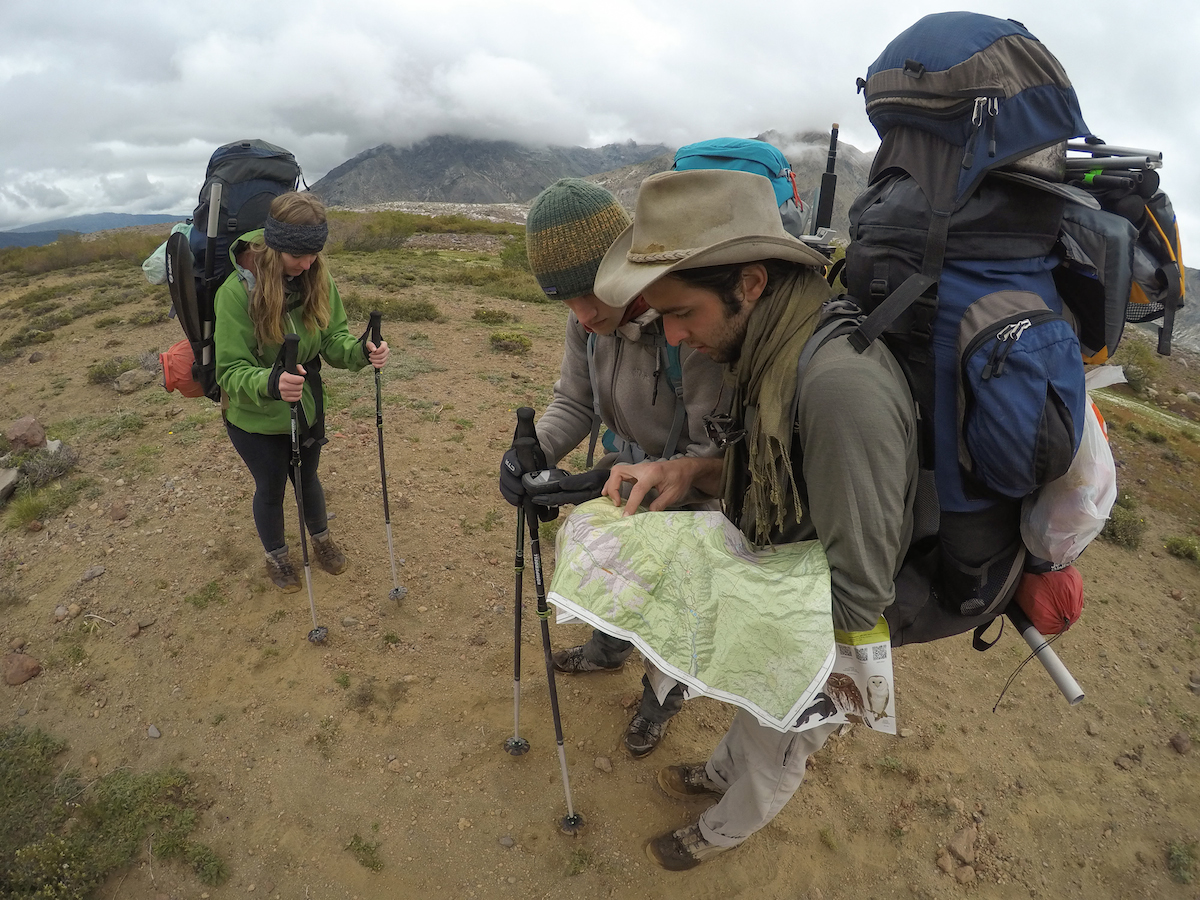
A spirit of spontaneity, along with the main characters’ real-time commentary (there is very little voice-over), elevates Unbounded above similar adventures stories. There is no time for anyone to consider their words carefully or attempt grand, ponderous statements—the bane of so many travel films. The audience sees just how hard experience builds character, and witnesses the deep encounters with new ways of life that broaden these crew members’ minds. As Adams says privately into the camera, “When you really go through some miserable stuff and in your mind you are close to getting mental, and then finally you’ve done it, you’re kind of proud of yourself. Proud of the group. It’s an awesome feeling. This is what life is about. Being miserable. And then you enjoy it.”
Snags in the filming and hiking process—such as sickness, injury, boots falling apart, lenses cracking, and paths going nowhere—are on full display. Throughout Unbounded, the basic logistical problem is always, as Martin says, “Too much equipment and not enough food.”
In their overstuffed packs, the crew totes two Sony A7S cameras, a GoPro, a camcorder, an assortment of mics, boom polls (yes, really), tripods, audio recorders, and battery packs—in addition to necessary camping gear, which in this case included two packrafts, paddles, and individual lifejackets. Food is an afterthought.
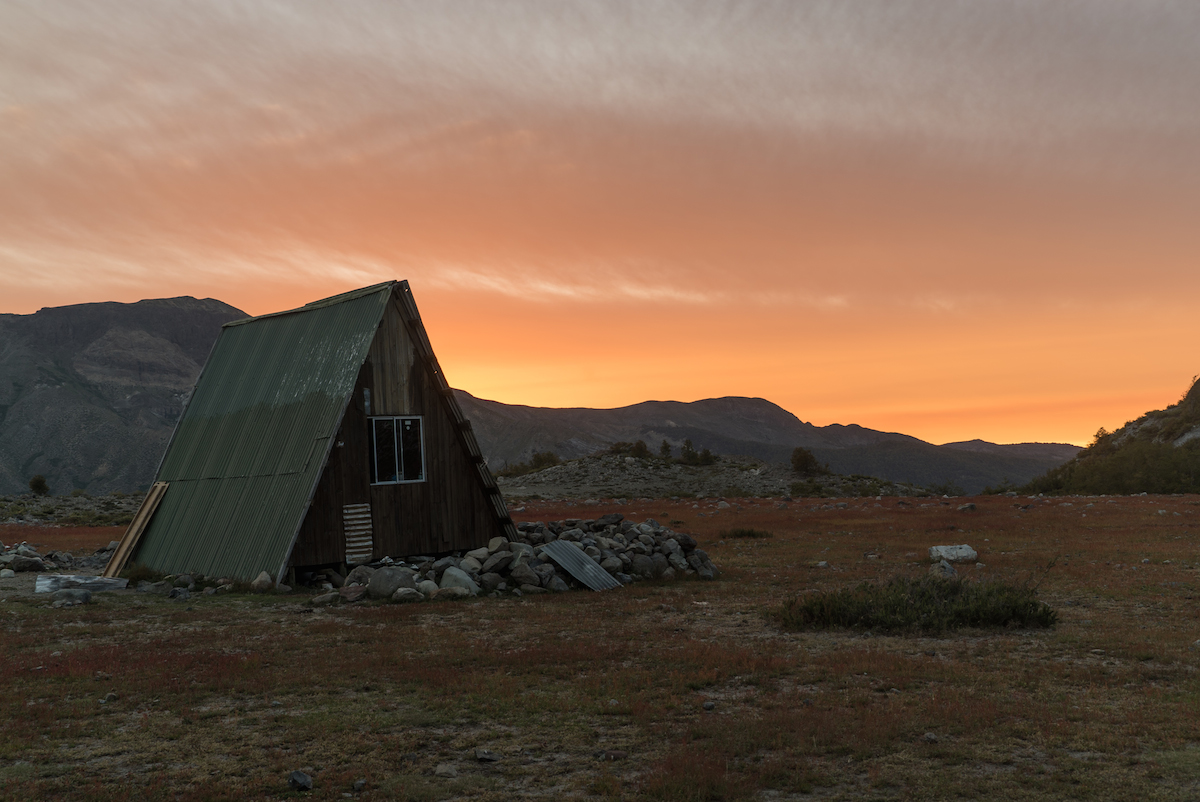 Watching Unbounded, it’s hard not to feel immense gratitude for the crewmembers’ physical sacrifices. About 14 minutes into the film, they reach a small remote ranch in the Bío Bío Region, and their cameras and sound equipment net a visually rich and intimate glimpse into the lives of campesinos. Viewers again get up close and personal during the crew’s multiday stop at the ranch of Maximilliano Lagos Curilem, a Mapuche native, and the epitome of hospitality. The film also includes a tender, candid interview with rancher Juan Carrilleo about the changing lives of the campesinos in the face of development.
Watching Unbounded, it’s hard not to feel immense gratitude for the crewmembers’ physical sacrifices. About 14 minutes into the film, they reach a small remote ranch in the Bío Bío Region, and their cameras and sound equipment net a visually rich and intimate glimpse into the lives of campesinos. Viewers again get up close and personal during the crew’s multiday stop at the ranch of Maximilliano Lagos Curilem, a Mapuche native, and the epitome of hospitality. The film also includes a tender, candid interview with rancher Juan Carrilleo about the changing lives of the campesinos in the face of development.
“The cinematography definitely gets better as the film goes along,” says Martin. “I would say this has to do with us maturing as filmmakers and adjusting to the environment. In the beginning, we were literally just trying to survive.”
By the time the crew reaches Puyehue Volcano, just past the film’s halfway point, they are in peak form. Their joy in the summit—and the wild beauty of the silhouetted peaks, desert fields, solidified lava flows, smoking fumaroles, and sea of clouds—are perfectly rendered.
Throughout Unbounded, various Chilean environmental groups and activists make appearances to explain critical issues such as water exploitation, but there is little further overt development of these themes in the film. Instead, Martin says that within the month, he’s releasing a separate 20-minute short that will tell the story of the environmental movement in Chile. He’s also donating a portion of the film’s proceeds to Chilean environmental organizations.
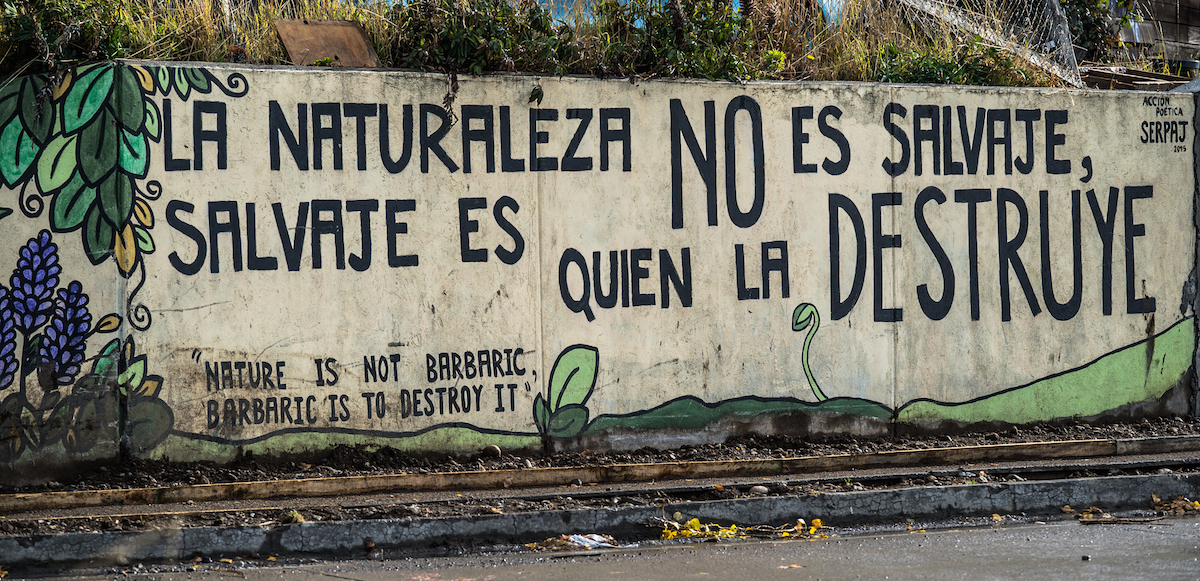
“I chose to tell Unbounded’s story with the main narrative focused on the team,” he says. “I've learned that people don't connect to subjects unless they connect to the main characters. The idea was to have the audience connect to Patagonia through our journey and experience—a major goal is inspiring people to visit the area so they will be more inclined to help conserve Patagonia. Because it's hard to want to protect a place you haven't been to.”
Garrett Martin is currently traveling the United States in his van to attend screenings of Unbounded. Watch the film at home via iTunes, Amazon, or Vimeo.
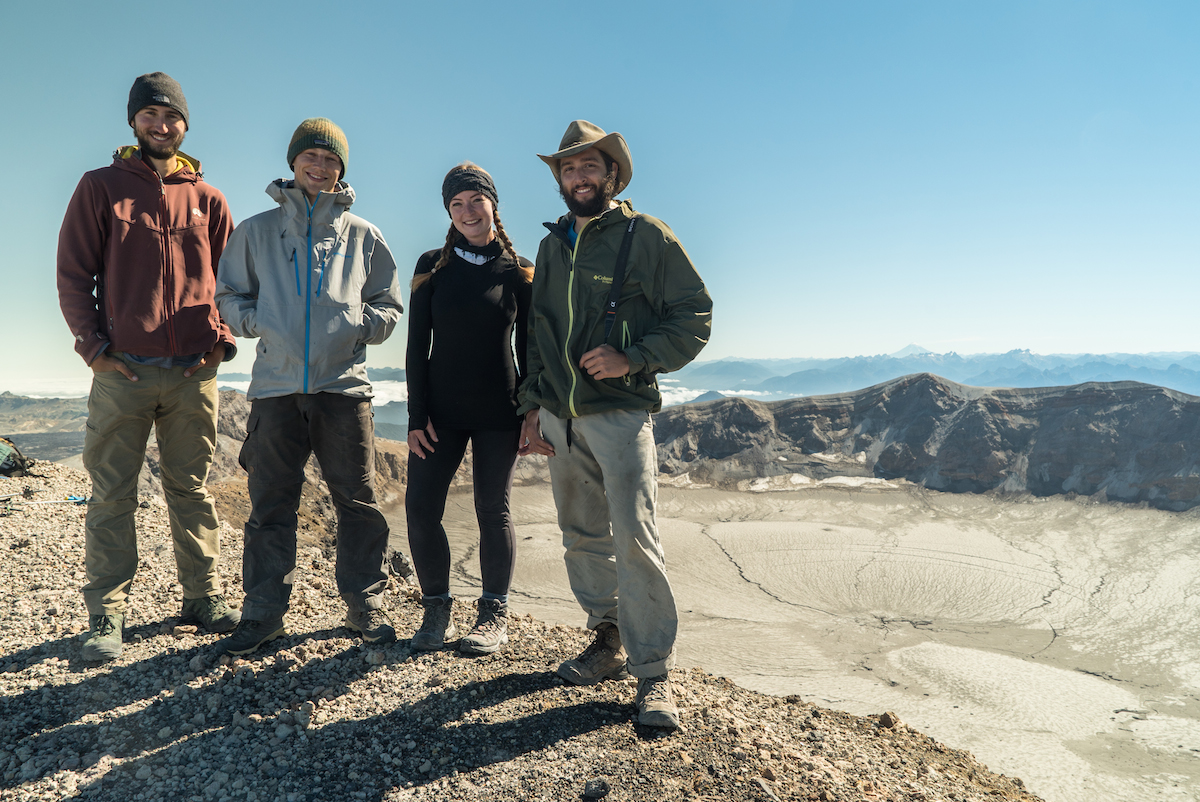
 The Magazine of The Sierra Club
The Magazine of The Sierra Club
